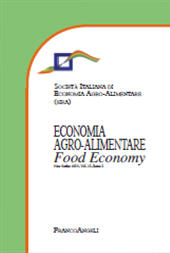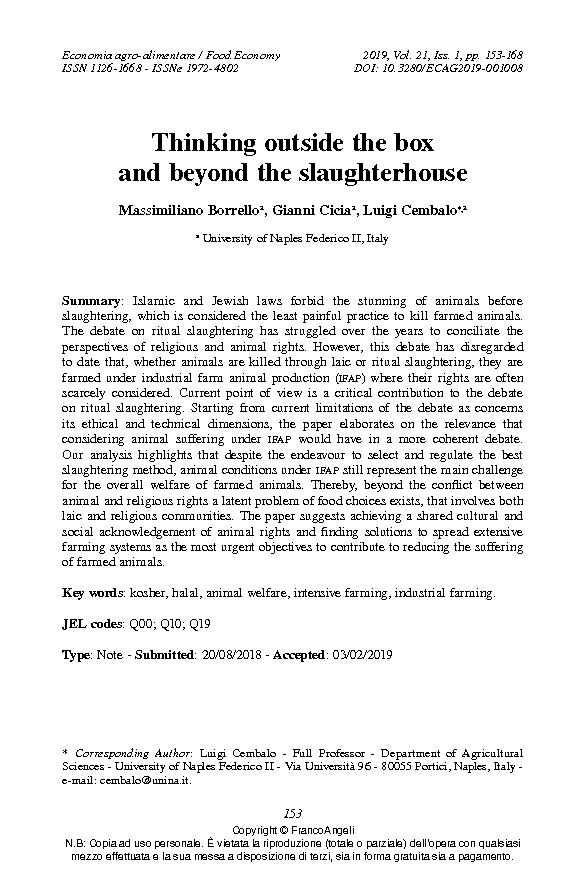Thinking outside the box and beyond the slaughterhouse
153-167 p.
Islamic and Jewish laws forbid the stunning of animals before slaughtering, which is considered the least painful practice to kill farmed animals. The debate on ritual slaughtering has struggled over the years to conciliate the perspectives of religious and animal rights. However, this debate has disregarded to date that, whether animals are killed through laic or ritual slaughtering, they are farmed under industrial farm animal production (ifap) where their rights are often scarcely considered. Current point of view is a critical contribution to the debate on ritual slaughtering. Starting from current limitations of the debate as concerns its ethical and technical dimensions, the paper elaborates on the relevance that considering animal suffering under ifap would have in a more coherent debate. Our analysis highlights that despite the endeavour to select and regulate the best slaughtering method, animal conditions under ifap still represent the main challenge for the overall welfare of farmed animals.
Thereby, beyond the conflict between animal and religious rights a latent problem of food choices exists, that involves both laic and religious communities. The paper suggests achieving a shared cultural and social acknowledgement of animal rights and finding solutions to spread extensive farming systems as the most urgent objectives to contribute to reducing the suffering of farmed animals. [Publisher's text].
Is part of
Economia agro-alimentare : XXI, 1, 2019-
Articles from the same issue (available individually)
-
Information
ISSN: 1972-4802
KEYWORDS
- kosher, halal, animal welfare, intensive farming, industrial farming



